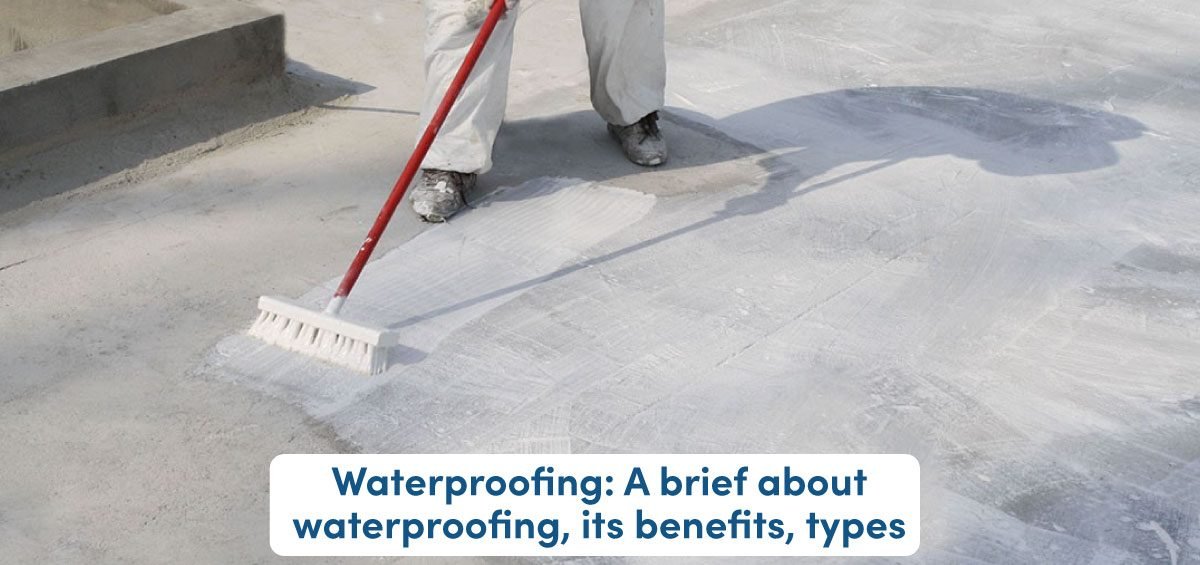Let us see what waterproofing means. Wikipedia defines it as the process of making an object or structure waterproof or water-resistant so that it remains relatively unaffected by water or resisting the ingress of water under specified conditions. Other definitions include waterproofing as the means of taking steps to prevent water from penetrating your house. It helps keep the interior of your house dry. It helps reduce humidity inside the house and prevent the growth of mold and mildew. It is also important for protecting the integrity of the structure. Water-Proofing is essential because it prevents water from entering buildings and also helps to keep the inside areas dry. It helps in reducing the humidity inside the building, minimizing the damage done to furniture and alike. It is very crucial to waterproof your house. Interior areas of our house must be kept dry from roof to basement. Water infiltration can lead to damages such as insect infestation, mold and in worst cases building failures. Waterproofing the house before construction will avoid these problems. If you waterproof your home, it will prevent damage later.
During monsoon we all come across the problem of water seepage from the ceiling or water getting clogged in the terrace which results in seepage. Such problems will require an expert and some basic knowledge about the problem and solutions to it.
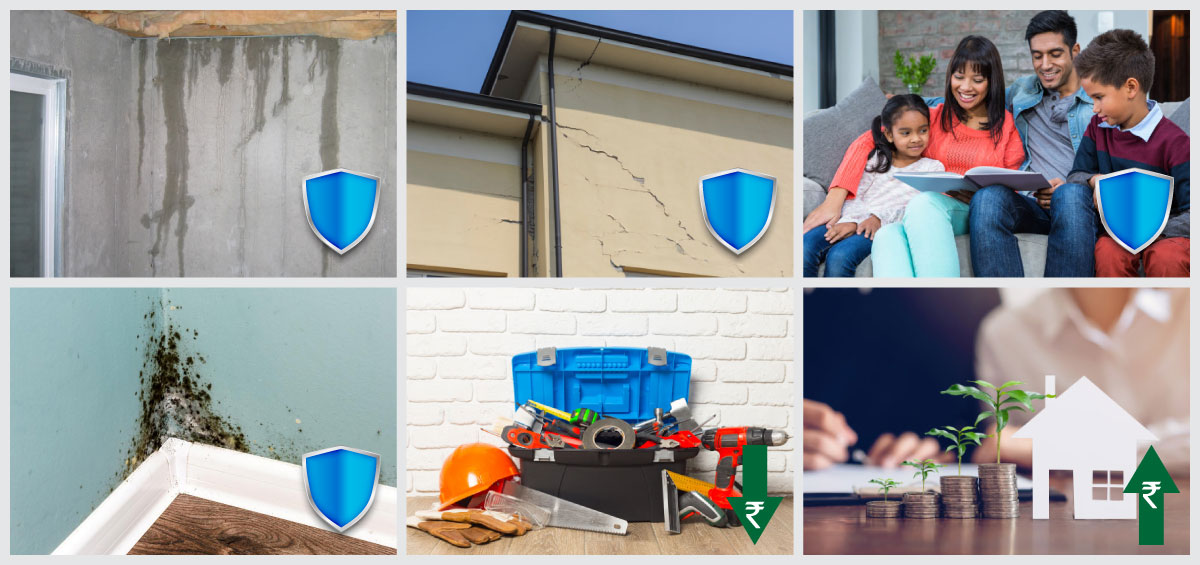
Benefits or advantages of Waterproofing
When you are waterproofing concrete, masonry and other cement-based materials you prolong the life and durability of the structure. Whether you are preserving, a concrete floor or poured concrete walls, keeping water out of concrete is a great step toward better longevity. A high water table, flood-prone building area or high rain levels dictate different types of waterproofing codes. In high-rise buildings, all substructures have to be waterproofed. They are load-bearing walls for incredibly heavy complexes and a material breakdown is unacceptable.
Waterproofing helps in:
- Protecting the walls from leakages.
- Preventing cracks on the surface of the concrete.
- Provides safety to the residents.
- Strengthening the building structure.
- Provides a shield against mold, mildew, fungus, etc.
- Reducing maintenance costs and clean-up.
- Increasing the value of the property.
- Reducing water-absorption.
Types of waterproofing
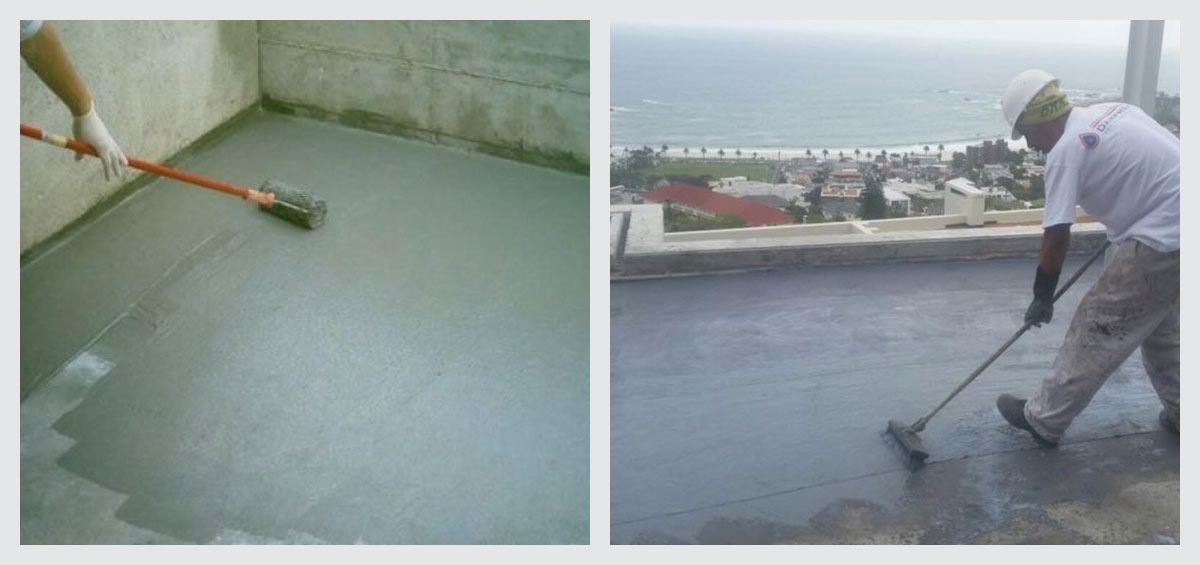
1. Cementitious Waterproofing
Cementitious waterproofing is the easiest method of waterproofing in construction work. The materials which are used for waterproofing of concrete are easily available in the market. This method is used in wet areas like toilets and bathrooms. But since it is used in internal wet areas like toilets and bathrooms, it is not exposed to sunlight and weathering. Thus expansion and contraction process will not take place in cementitious waterproofing.
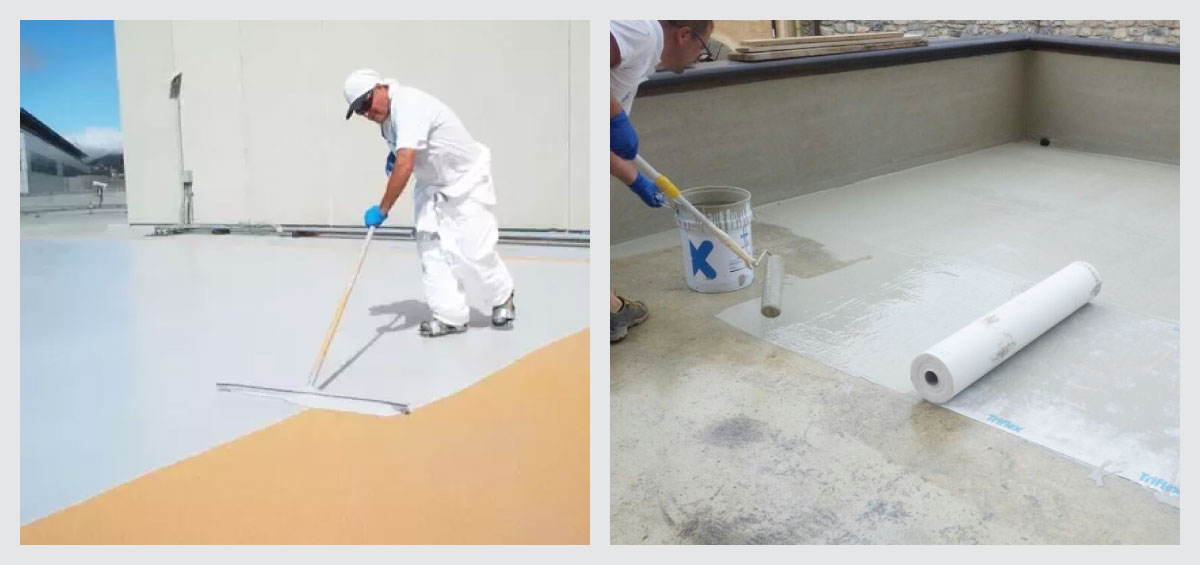
2. Liquid Waterproofing Membrane
Liquid membrane is a thin coating that usually consists of a primer coat and then two coats of liquid waterproof which are applied by spray or roller. It offers more flexibility than the cementitious type of waterproofing by forming a rubbery coating on the applied surface. The durability of the waterproofing depends on the type of polymer used for the making of the liquid waterproofing. Liquid membrane composes of polymer modified asphalt. Polyurethane liquid membranes are also used for waterproofing.

3. Bituminous Coating
Bituminous coating is flexible and protective which is also called asphalt coating. It is a very good protective coating and waterproofing agent, especially on surfaces of concrete foundations. Bituminous coating is made of bitumen based material and it is not suitable for exposure to sunlight. It becomes very brittle and fragile due to long exposure to sunlight.
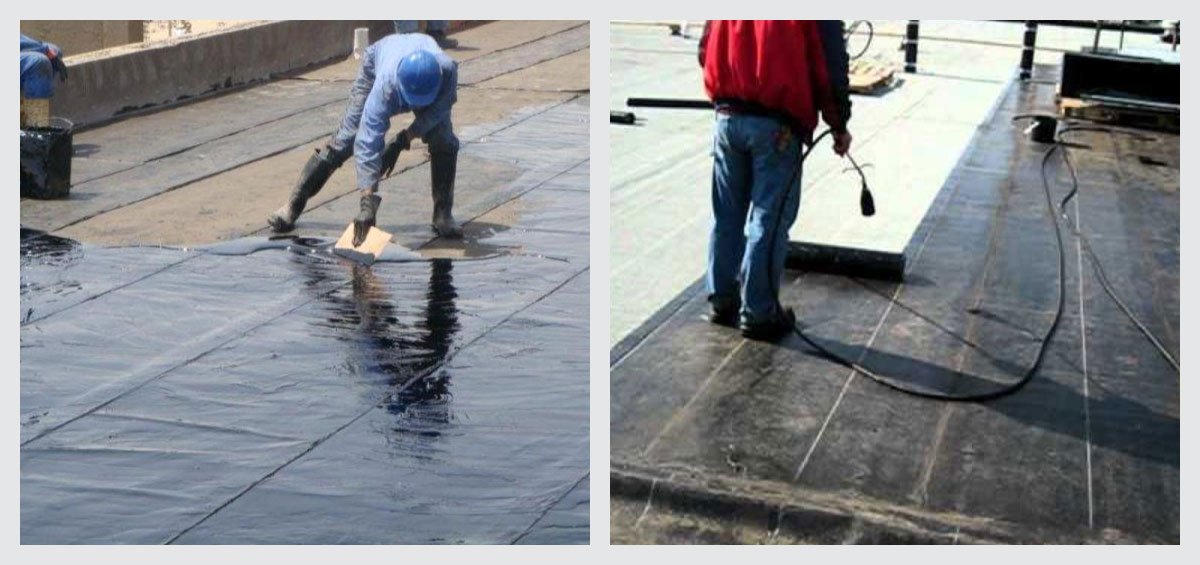
4. Bituminous Membrane
Bituminous membrane waterproofing is a popular method used for low sloped roofs. The bituminous membrane has a torch on the membrane and self-adhesive membrane. Self-adhesive compounds comprise asphalt, polymers, and filler. The self-adhesive type has a low shelf life as bonding properties of the membrane reduces with time. It is a mixed substance made up of organic liquids that are highly sticky, viscous, and waterproof. Torch-on membrane uses a fire touch to melt the bituminous layer on the member for bonding.
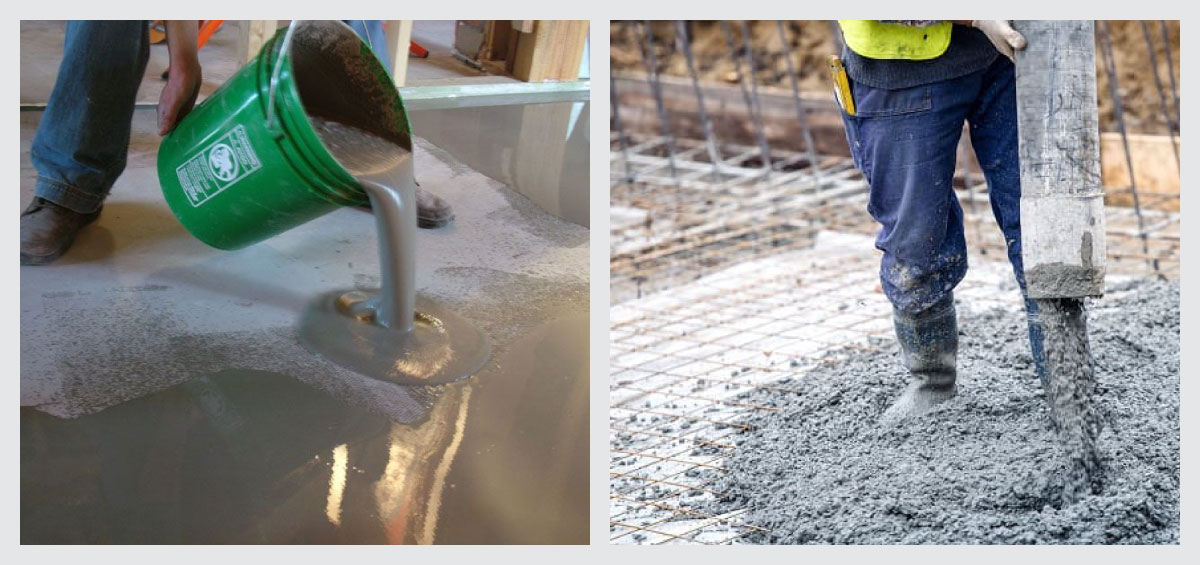
5. Admixtures
For the past years, a new type of waterproofing has been used around the world. These admixtures are added at the batching plant or on the site and it will react chemically within the concrete which turns the concrete itself into a water barrier. Integral concrete waterproofing systems can be Densifiers, water repellents or crystalline admixtures.
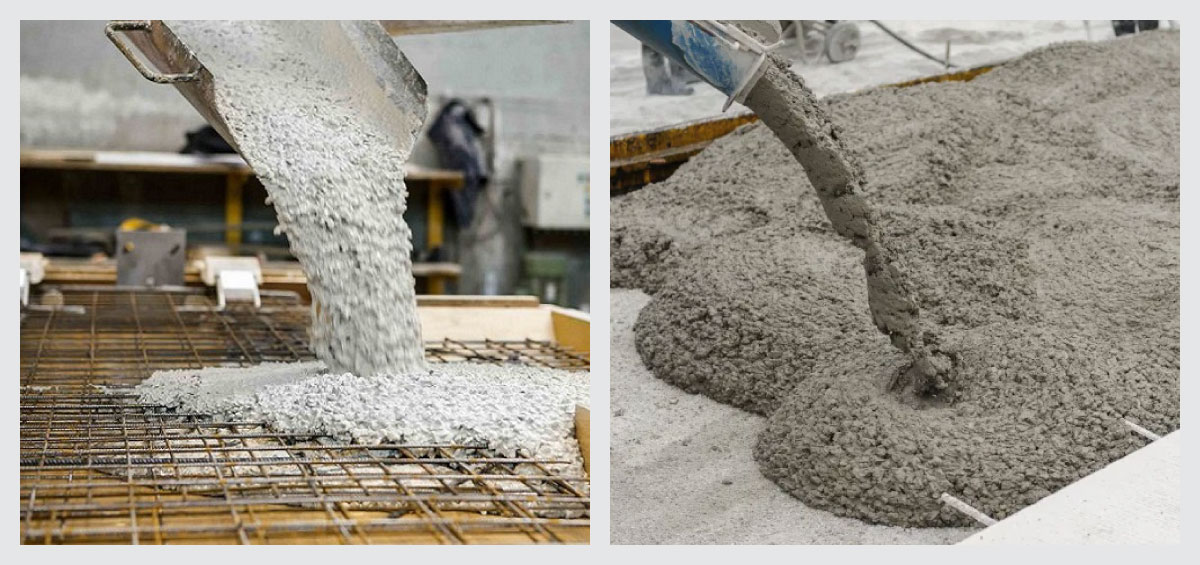
6. Crystalline Admixtures
Crystalline based systems typically come in a dry powder form. Crystalline systems actually use available water to grow crystals inside the concrete, effectively by closing the pathways for moisture that can damage concrete itself the water barrier.

7. APP membranes
The APP membrane, short for Atactic Polypropylene Membrane, is a special waterproofing material that is manufactured from Bitumen. They come in rolls. Each roll measures 10 meters by 1 meter and covers an area of 8.7 m². They comes in different thickness from 1.5mm to 5mm. APP membranes are two major types polyester and fibre. With proper workmanship, the APP membrane is a very efficient and durable water proofing material used in most constructions.
Some advantages of using the APP membrane are that it has enhanced bitumen performance which helps in UV resistance. It is not affected by rapid changes in temperature and is still efficient during extreme hot and cold temperatures. APP waterproofing membranes also provide superior tensile strength while maintaining critical flexibility.
So do not ignore waterproofing problems of your buildings. Use the scientific ‘gyan’ that we imparted. This blog is written keeping the non-technical people in mind so that waterproofing or some other terms or matter related to waterproofing doesn’t remain alien to us anymore. If you have any waterproofing or any other issues, please contact us without any hesitation at www.healthyhomes.co.in.
Healthy Homes with its expert and experienced technical team can assess and repair external walls. Give us a call today on 1800-419-4647.

